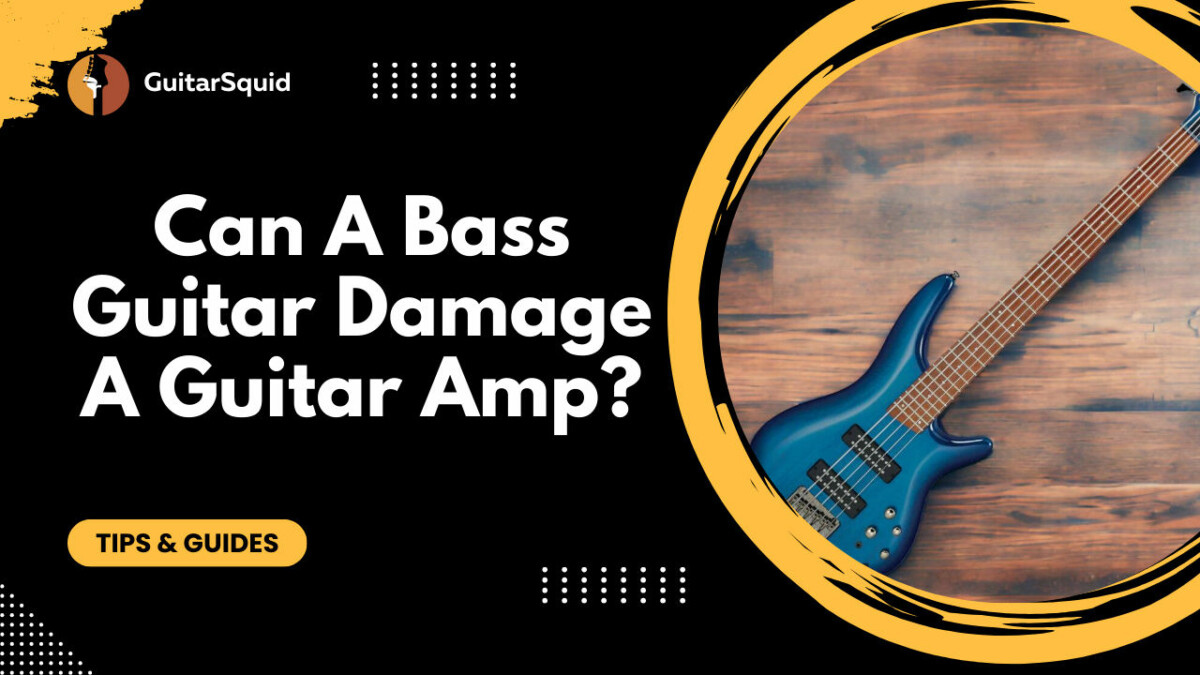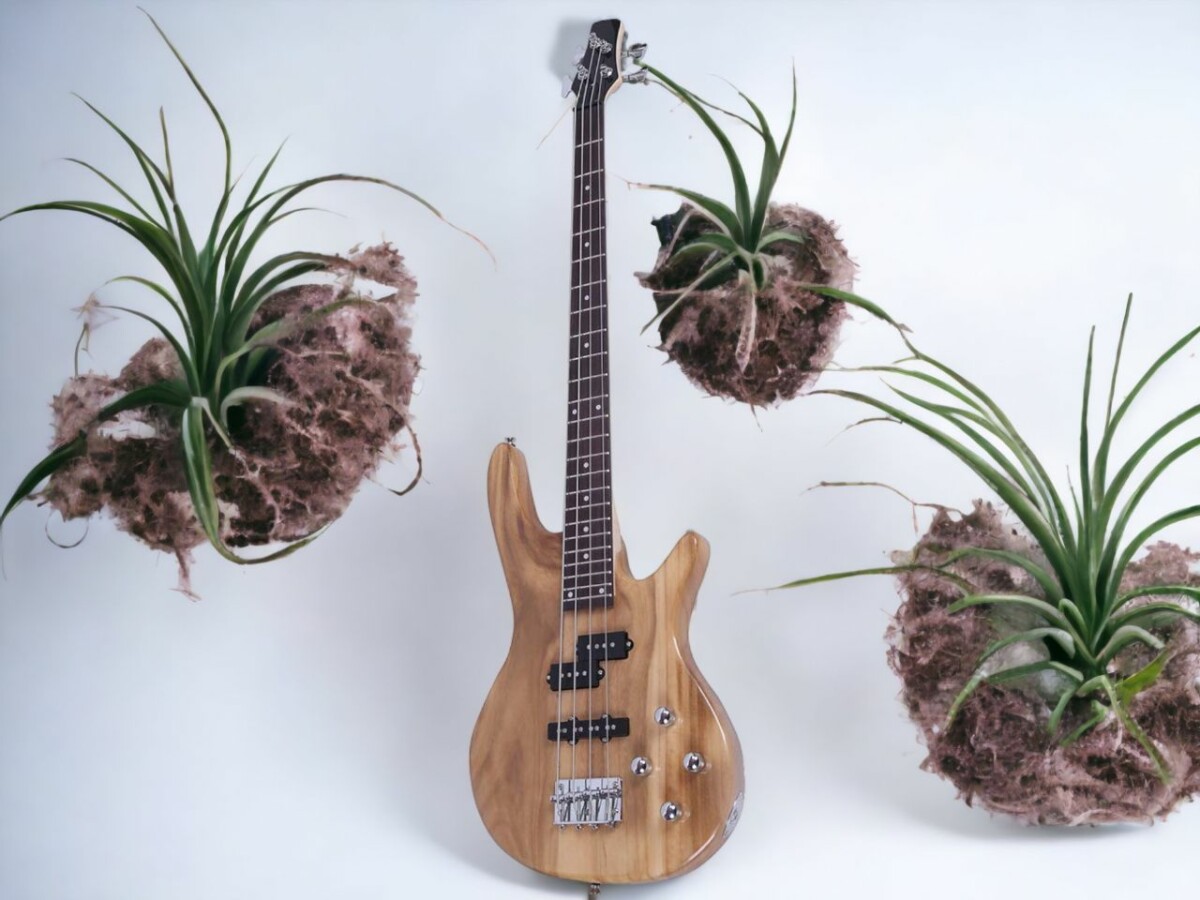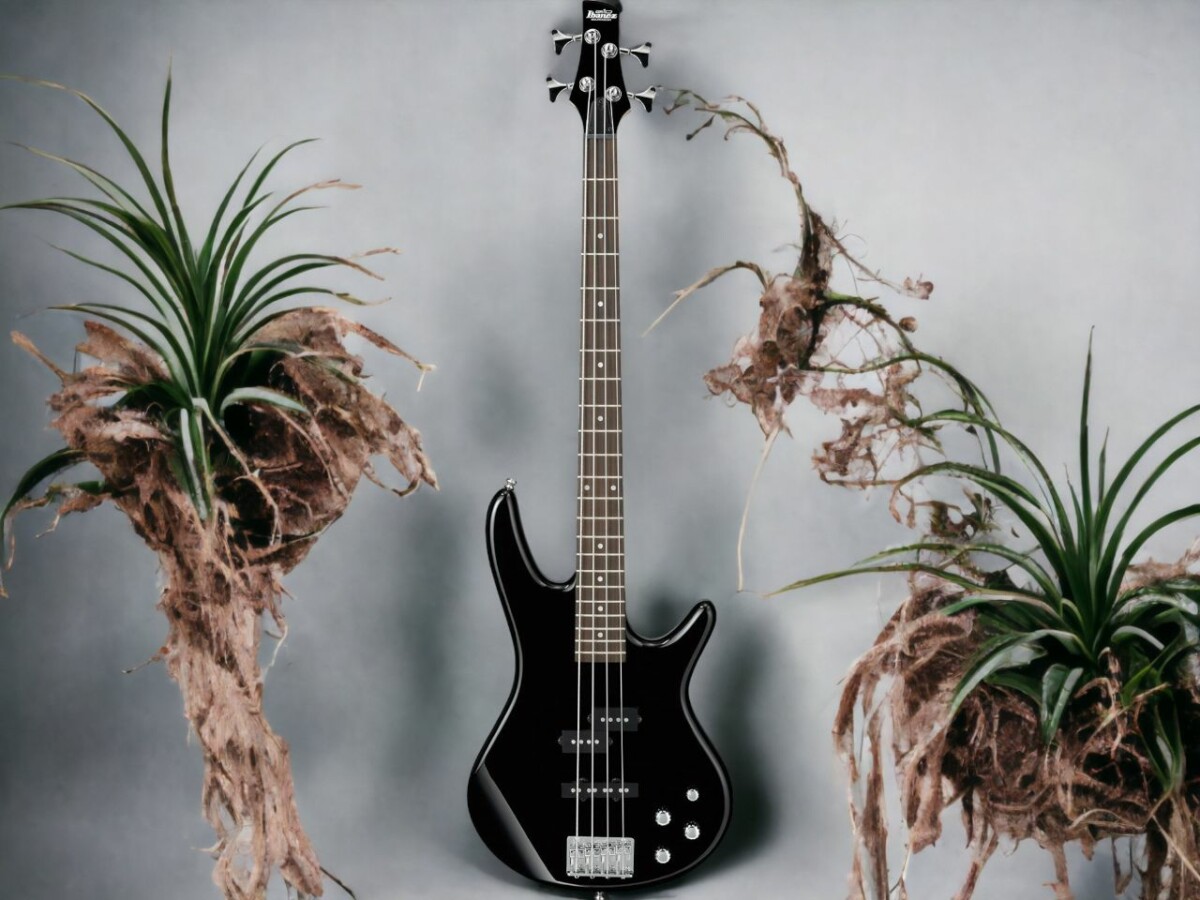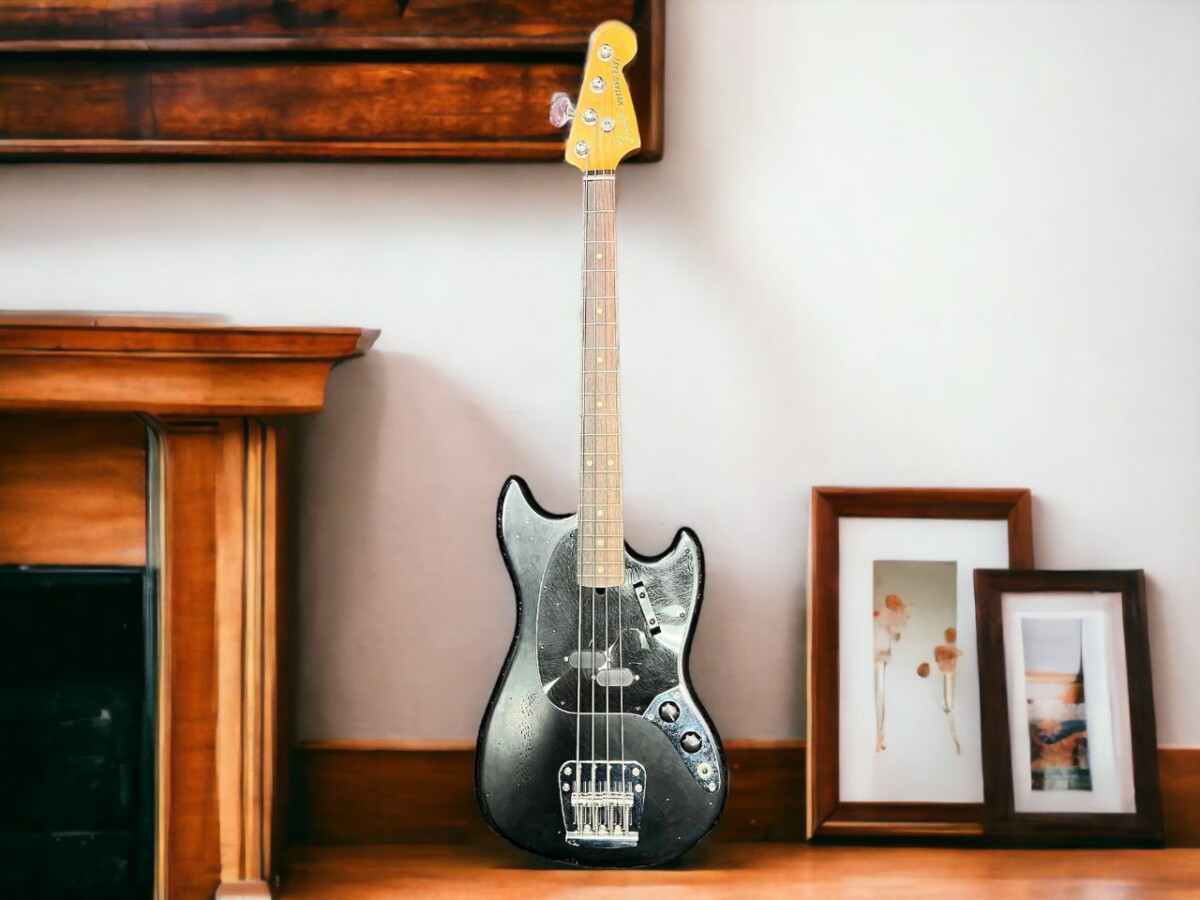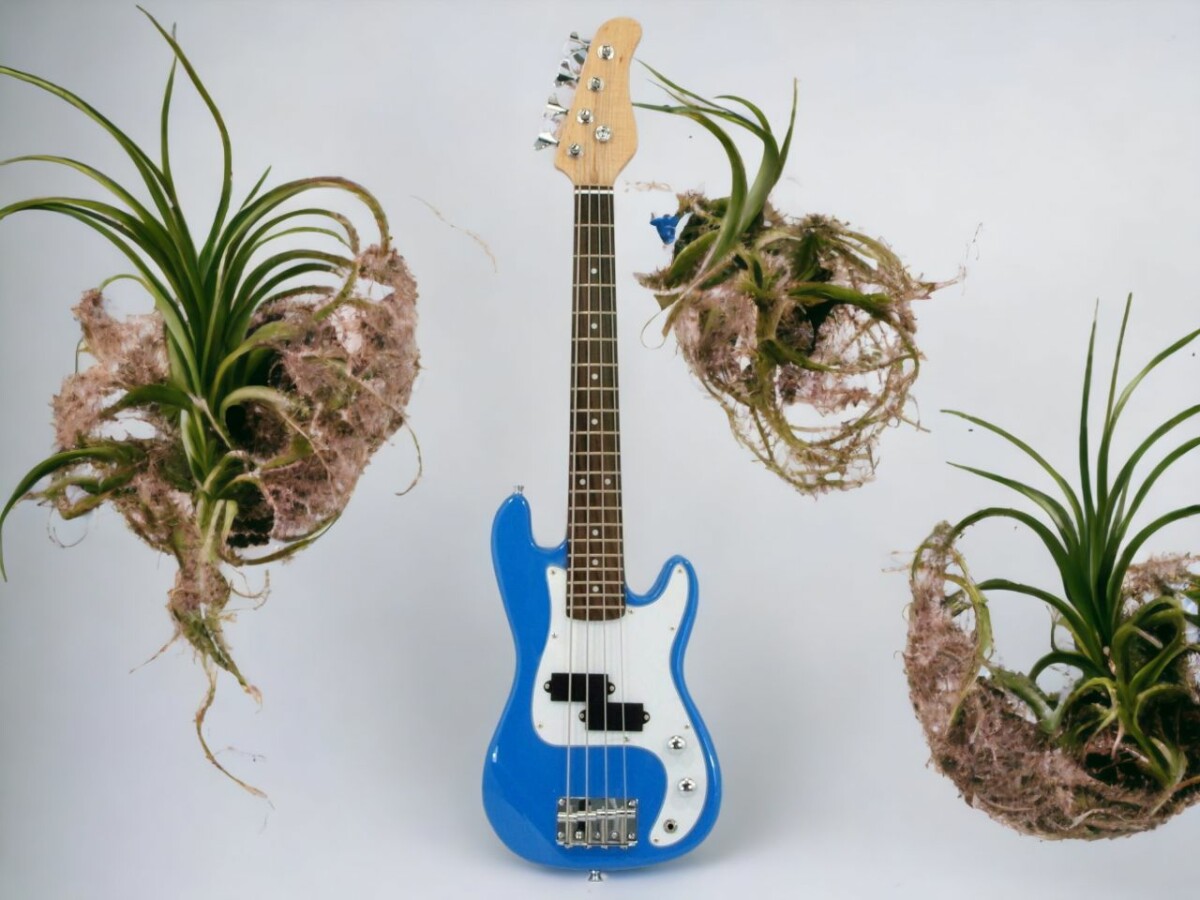Alright, let’s level up your knowledge game.
You’re standing there, bass guitar in hand, staring at your sweet guitar amp, and you’re pondering if this is a match made in heaven or a recipe for disaster.
Well, let’s get down to brass tacks and uncover the truth about this risky pairing.
We’re going to dive into the world of frequency management, speaker compatibility, and yes, those annoying high-pass filters that mess with your sound.
The Risks of Using a Guitar Amp for a Bass Guitar
First of all, you should know that – Yes, cranking up the volume on a bass guitar plugged into a regular guitar amp could potentially cause damage. Guitar amps were designed with the frequency range of electric guitars in mind, not the thumping low frequencies of the bass.
Alright, let’s talk about the potential hazards that come with using a guitar amp for a bass guitar.
Now, these aren’t your everyday risks – we’re talking about eight critical ones that could mess up your amp and totally screw with the audio quality.
It’s a common myth that the problem lies with the amp itself, but that’s not the case. The real culprit is the speaker compatibility.
Bass frequencies are a different beast, they need more air movement which the smaller guitar speakers just aren’t cut out for. This mismatch can lead to some serious speaker damage. And while we’re on the topic of bass and its quirks, ever wonder if you can play bass guitar with a pick? Or if you can play bass guitar with acrylic nails? Interesting things to ponder.
But it doesn’t stop there, this speaker compatibility issue also has a big impact on the relationship between the bass guitar and the guitar amp.
Guitar amps, especially the ones with high-pass filters, can make the bass sound as thin as a sheet of paper. And if you’re using an active bass, you might need to tweak the settings a bit to prevent the amp from getting overloaded.
So, the amp itself won’t necessarily give up the ghost, but you definitely need to think about the possible limitations it has when it comes to handling bass.
It’s a bit of a delicate balancing act, but with the right knowledge, you can avoid potential pitfalls.
The Role of Amp Size in Potential Amp Damage
On your quest to grasp the potential havoc a bass guitar can wreak on a guitar amp, it’s pretty crucial to factor in amp size. Now, this is a concept that gets brushed off more often than it should. Believe it or not, amp size plays a pretty big role in the whole damage scenario.
Here’s the thing, the smaller amps don’t quite have the muscle to take on the lower bass frequencies, making them more prone to damage. You know how it is, the bigger the better, and that’s true even with amps. The larger amps have a higher capacity to handle these bass frequencies without going bust. But, did you know you can use a drum amp for a bass guitar? It’s quite the concept.
But hey, don’t forget about speaker compatibility. When you’re strumming away on your bass guitar hooked to a guitar amp, you need to make sure the speakers can actually take those bass frequencies, especially when you crank up the volume, or you might be looking at some serious speaker damage. So, do your homework and check your speaker’s compatibility to steer clear of any possible damage.
How Modern Guitar Amps Are Designed to Handle Bass Guitars
You might be curious about how the latest guitar amps are engineered to cope with the deep, rumbling frequencies of a bass guitar without causing a ruckus. The answer lies in the magic of modern technology. Today’s models often use high-pass filters to block those pesky low frequencies from reaching the amp’s speakers, protecting them from damage.
Still, we can’t ignore the crucial role of speaker compatibility. Here’s the thing, the speakers in guitar amps aren’t always designed to handle bass frequencies, especially when you’re cranking up the volume. This mismatch can lead to some serious harm, and while the amp might soldier on, the speakers mightn’t be so lucky.
Now, if you’re jamming with active basses having higher outputs, you need to be mindful of the gain. Here’s a pro tip: dial down the gain control to avoid overloading the amp. This simple trick can save your amp from potential damage. So, even though modern guitar amps are better prepared for the task, you still need to be cautious.
Exploring the Effects of High-Pass Filters on Bass Sound
Let’s dive into the world of high-pass filters and see how they influence the bass sound in your music. These filters play a major role in shaping the quality of your bass tone. Essentially, what they do is let the high frequencies roll on through while cutting back on those lower frequencies. The result? A leaner, less beefy bass sound when you’re jamming on your guitar amp.
Now, let’s talk about the differences between playing bass on a guitar amp speakers versus a bass amp speakers. It’s quite the contrast, honestly. Guitar speakers aren’t exactly built to handle those deep, low frequencies that a bass guitar belches out. So, if you try to play bass on a guitar amp, you might find your sound lacking that rich depth and resonance. Plus, there’s a good chance you might end up wrecking your speakers. Not cool, right?
On the flip side, bass amp speakers are crafted specifically for those low frequencies. They’re like the perfect partner for your bass guitar, delivering a sound that’s not just full, but has that rich, deep quality that’s just so satisfying. So, in a nutshell, if you want a more wholesome, fuller bass sound, you’d do well to stick with bass amp speakers.
Techniques to Protect Your Amp When Playing a Bass Guitar
So you’ve landed a bass guitar and an amp, but you’re a bit on edge about potential harm, huh? Don’t sweat it, there are some pretty cool tactics you can employ to keep your amp safe and sound.
Firstly, have a go at tweaking the gain control if you’re rocking an active bass. This will dial back the output and stop your amp from going into meltdown mode.
Next, consider messing around with your bass frequencies in your effects or settings. Doing so can take a load off your amp’s speakers and keep them from freaking out.
Don’t forget to keep an eye on your volume levels too. Blasting out tunes at max volume might feel great, but it’s a surefire way to bust speakers that aren’t built to handle those heavy-duty bass frequencies.
If your amp has a high-pass filter, definitely consider using it. Sure, it might make your bass sound a bit on the thin side, but at least it won’t end up wrecking your amp.
And lastly, think about the size of your amp. Those pint-sized amps might look cute, but they’re more likely to take a hit.

